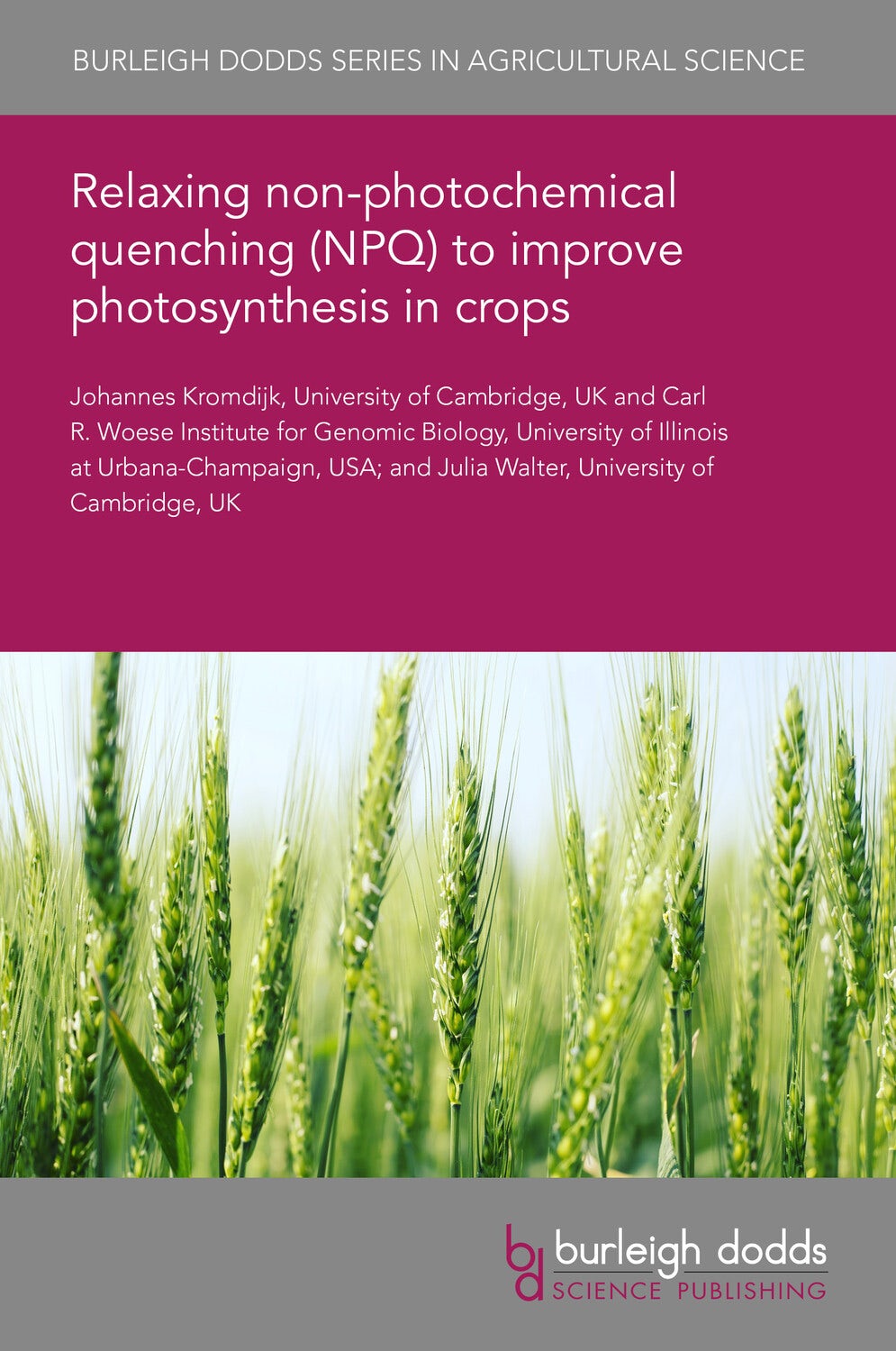We're sorry. An error has occurred
Please cancel or retry.
Relaxing non-photochemical quenching (NPQ) to improve photosynthesis in crops
Regular price
£0.01
Sale price
£0.01
Regular price
£0.00
Unit price
/
per
Sale
Sold out
Re-stocking soon
Sunlight intercepted by crop plants drives photosynthesis and growth. However, the light-harvesting antenna complexes that capture light energy for photosynthesis can also absorb too much light, wh...
Read More

Some error occured while loading the Quick View. Please close the Quick View and try reloading the page.
Couldn't load pickup availability
- Format:
-
07 March 2022

Sunlight intercepted by crop plants drives photosynthesis and growth. However, the light-harvesting antenna complexes that capture light energy for photosynthesis can also absorb too much light, which enhances the formation for reactive oxygen species and can result in damage to photosynthetic reaction centres. In order to prevent excessive damage, light-harvesting efficiency is reduced under high light, via upregulation of non-photochemical quenching (NPQ) processes involved in thermal dissipation of excitation energy in the photosystem II antennae. Relaxation of NPQ following high light exposure is not instantaneous and the response time increases with severity and longevity of the high light exposure. Due to slow NPQ relaxation, photosynthetic light use efficiency can be decreased for prolonged periods after high light exposure. In this chapter we review mechanistic understanding of light harvesting and NPQ, how NPQ can be measured and results from recent attempts to accelerate NPQ responses to light.

Price: £0.01
Publisher: Burleigh Dodds Science Publishing
Imprint: Burleigh Dodds Science Publishing
Publication Date:
07 March 2022
ISBN: 9781801463607
Format: eBook




